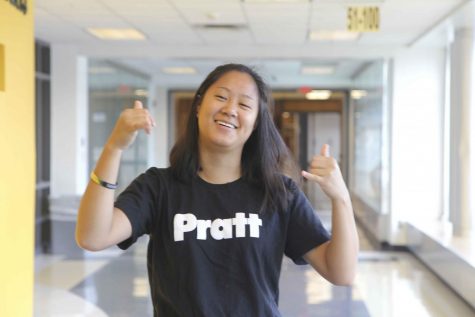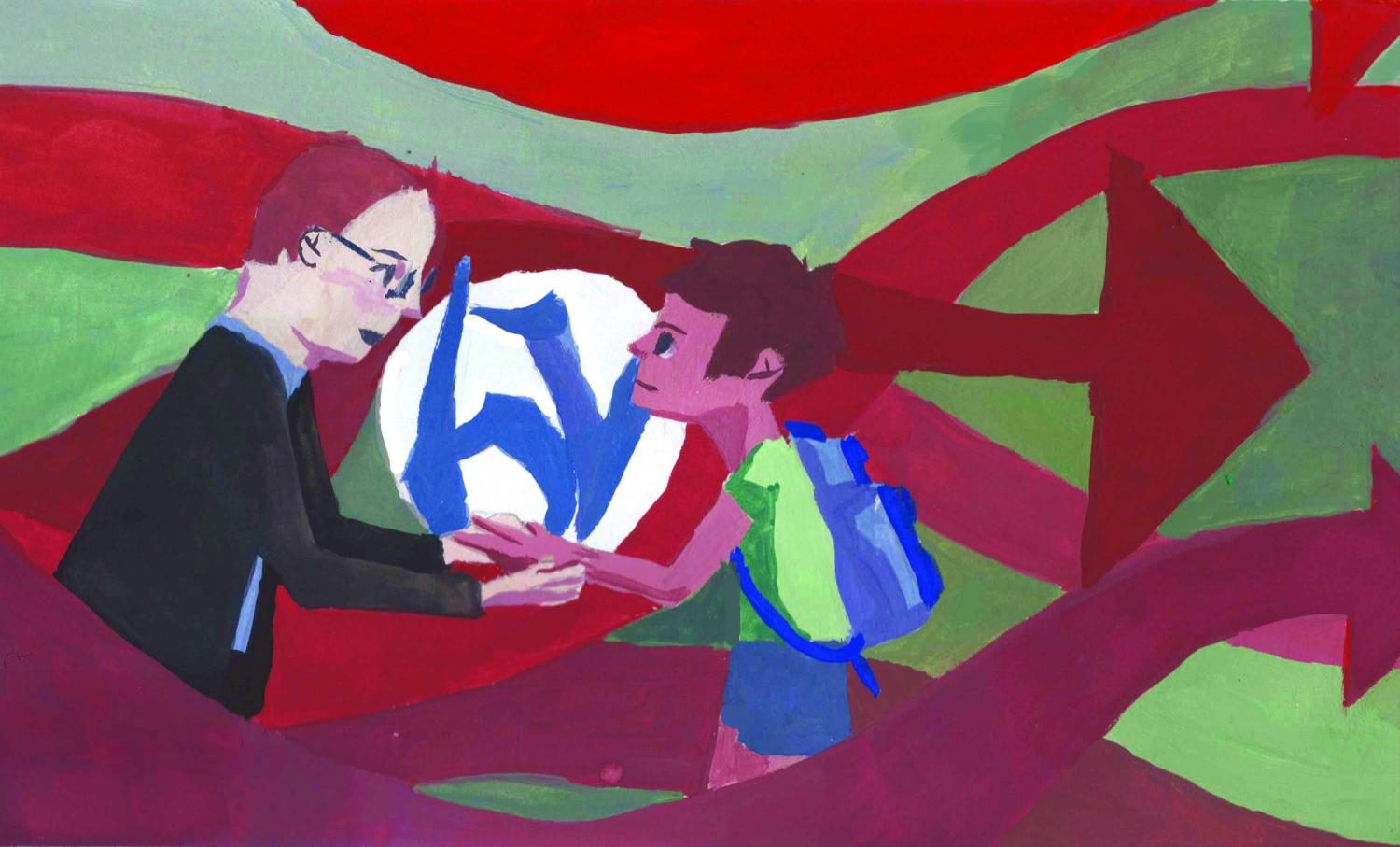The BV District needs to include high school students in the discussion on important changes in order to cultivate progress.
Superintendent Todd White shakes hands with a student in order to advance the progress of education at BV.
Just like parents, the Blue Valley School District has the best intentions for us students.
They want to see us succeed in the future. They endeavor to give us the best education.
However, just like parents, they don’t completely comprehend issues from where we stand having grown up in a radically different time and into different circumstances.
We assume dissimilar ideas of what a good education means and takes.
We aren’t always right, but the dialogue we pass along the hallways about district and school plans have merit, so it is imperative that the district reaches out to us when making decisions.
For example, in 2014, the BV school board planned to cut Area Studies classes at BV because they believed it was redundant to offer them at the same time as AP Human Geography.
BV alumni Serena Nangia, who gathered 430 signatures opposing the decision and spoke out at a board meeting, said the district failed to communicate to the students.
“I didn’t find out about [the matter] until very close to the vote date,” Nangia said. “We were never asked if we wanted the classes even though we’re the ones taking them.”
Although the district did provide a rigorous class for the freshman, BV also lost valuable classes about places like Africa and Asia. History teacher Brian Mowry said BV students wanted to learn more about these cultures in a 2014 article with The Tiger Print.
And when rumors passed along about the middle school curriculum modifications, many of us were passionate about fighting for the arts. Even though the little amount of information we received was overblown and incorrect, some of us got a taste of how it feels to speak out to the district.
If we are involved in the decision-making process, and if the district listens to our proposed changes, then they will discover that they are enhancing our educational experience.
According to Adam Fletcher, author of the book “Meaningful Student Involvement,” involving students in decision-making enhances lifelong critical thinking skills for students and fosters supportive learning environments.
So we’ll feel more motivated to go to a school we feel cares about us, and the district will see favorable outcomes while also creating a positive community among the parents, students and district.
Student involvement can be student representatives meeting with administrators to talk about concerns, student forums and more communication and transparency.
It won’t always go right — mistakes accompany change. But over time, everyone will adjust, and everyone will benefit.
If the district wants us to act like adults and learn how to live in the modern world, then they should allow us to voice our opinions, and they should listen.

Kaitlin Yu is co-editor in chief of “The Tiger Print.” She appreciates the arts, loves cats and dogs and takes pleasure in wasting her time away by...




